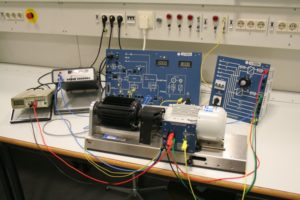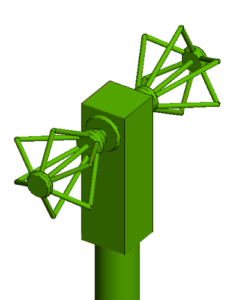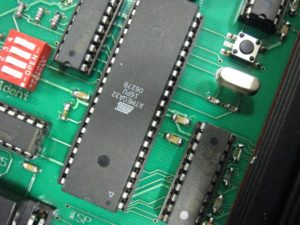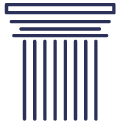History
The subject of “Fundamentals of Electrical Engineering” in the Department of Electrical Engineering was headed by G. Loocke from 1973 until 1988. In 1989, he was replaced by J. Schmidt who was dually responsible for the subject of “Power Engineering”. In the summer of 2002 S. Dickmann was appointed head and the subject again became independent. This emphasized its importance as a fundamental subject for electrical and mechanical engineering as well as business engineering.

hands-on training “electric machine”

CAE model of a biconical antenna

microcontroller pcb
Research
The institute’s primary research field is EMC (electromagnetic compatability). Most projects are concerned with design methods for EMC compliant electric devices. For this purpose the institute provides various laboratory equipment like EMC receivers and test devices, an anechoic chamber, (G)TEM cells, power amplifiers, a vector network analyzer and various computer workstations to perform numerical field and network simulations. Most research projects are performed in cooperation with industrial partners.
Education
“GET” (“Grundlagen der Elektrotechnik”, i.e. “Fundamentals of Electrical Engineering”), along with mathematics and physics, is the largest of the three building blocks of the undergraduate course in electrical engineering. It is also a significant part of the mechanical and business engineering courses. At the beginning, the GET lectures provide an introduction to the physics of electricity and magnetism. This is vital for further subjects like “Theory of Electromagnetics”, “RF Engineering” and “Electrical Machines and Drives”. In addition, basic electronic components are introduced as well as their function in electric networks. This enables students to understand the behaviour of common everyday devices, while at the same time laying the foundation for subsequent lectures such as “Electronics”, “Communication Technology” and “Control Engineering”.
■ All GET lectures offer:
laboratory experiments which train the combination of theoretical and practical skills
illustrative instructions including practical experiments
theoretical exercises in small supervised groups to train subjects under individual supervision
Professorship ■ Team ■ Research ■ Lectures
Letzte Änderung: 24. October 2017
